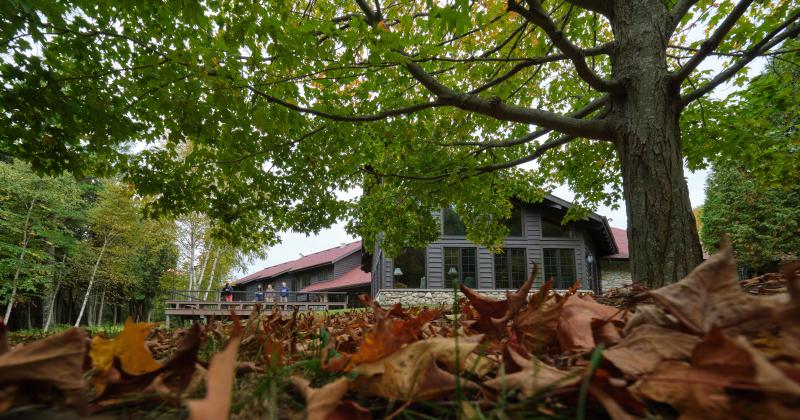Online Seminars
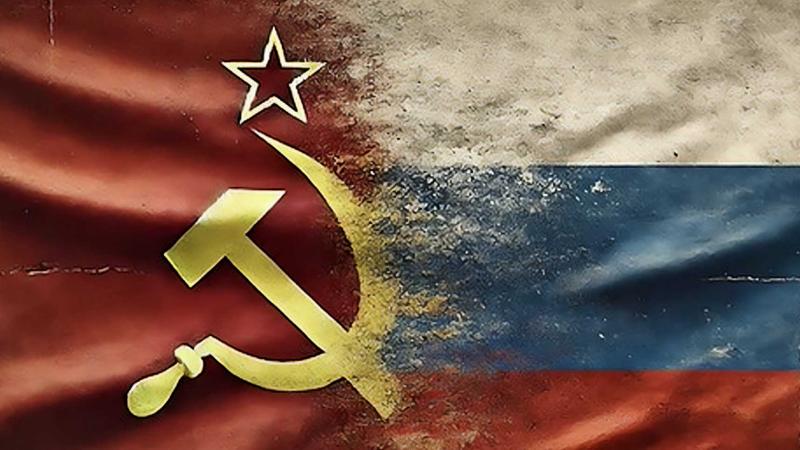
Why Putin? The Russia Syndrome
Schedule: Wednesdays, April 1-29, 2:00-3:30 pm, ONLINE
Instructor: Paul Cohen
Description: This seminar will address Russia’s deep-seated resentment of the West, starting in the mid-19th century and ending with Putin and his anti-western agenda.
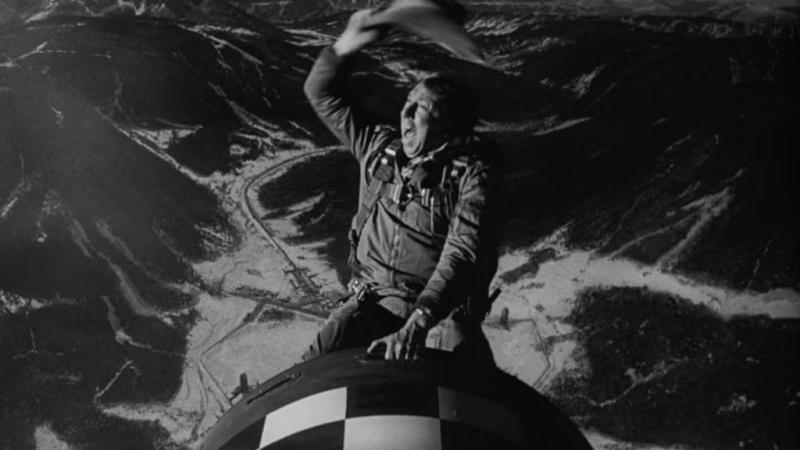
Film Satire
Schedule: Wednesdays, May 27-June 24, 2:00-3:30 pm, ONLINE
Instructor: Paul Cohen
Description: This seminar will discuss such satires as Dr. Strangelove (Stanley Kubrick, 1964), Network (Paddy Chayefsky, 1975), and Life of Brian (Terry Jones, 1979). We'll ask what these films satirize, but also who was doing the satirizing, when, and where.
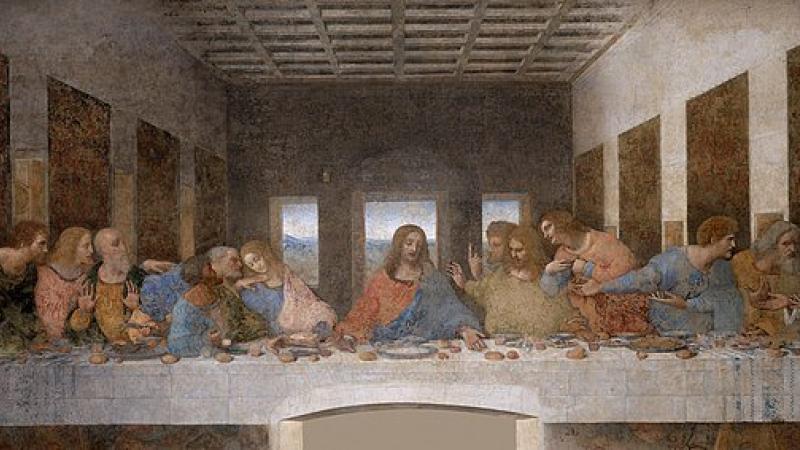
The Birth of Christianity
Schedule: Wednesdays, September 2-30, 2:00-3:30 pm, ONLINE
Instructor: Paul Cohen
Description: In this seminar, we will explore the historical world of early Christianity by discussing several New Testament texts as well as historical documents that reflect the early Roman view of the Christians.
In-Person Seminars at the Björklunden Lodge
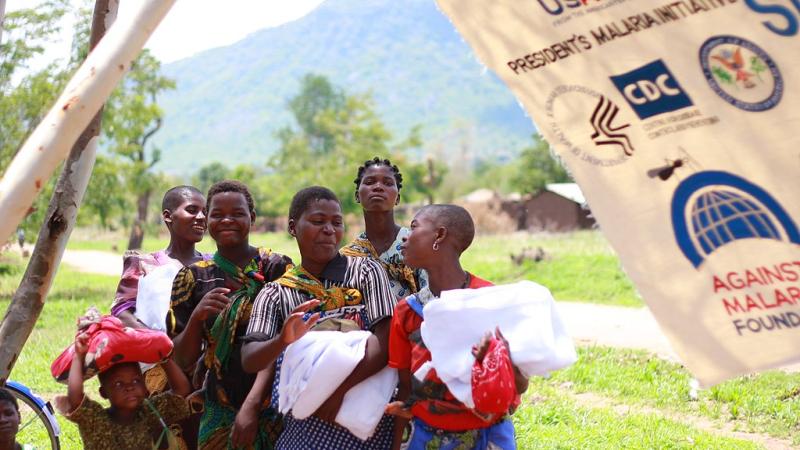
Women & children receive anti-malarial bednets as part of a public health program in Kalinde & Nambazo, Malawi (2010)
Effective Altruism
Schedule: June 14-19
Residents & Commuters arrive Sun, 4pm
Mon-Fri classes, 9am-noon
Instructor: Dylan Fitz
Description: Discover how effective altruism empowers you to make the greatest impact with your resources by focusing on evidence-based solutions to global poverty. This course explores why we give, how to maximize our impact, and highlights proven initiatives that save lives for as little as $5,000.
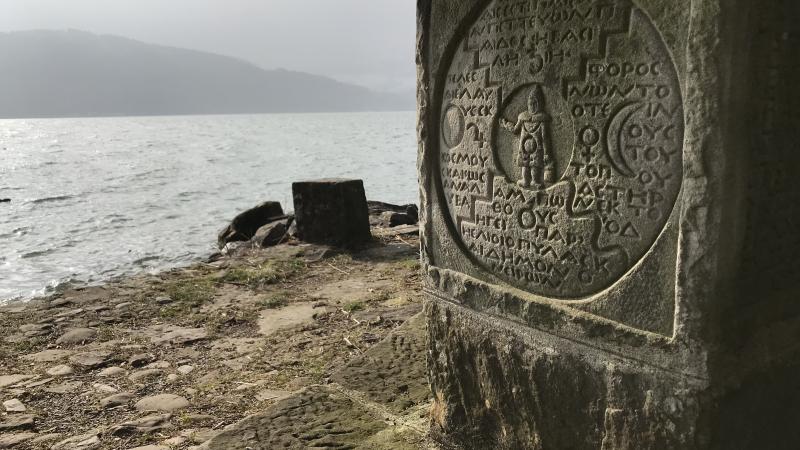
Perchance to Dream: Dreamwork from a Historical and Psychoanalytic Perspective
Schedule: June 14-19
Residents & Commuters arrive Sun, 4pm
Mon-Fri classes, 9am-noon
Instructors: Brigid E. Vance and Maria Luisa Maggiolo Marciales
Description: Explore the fascinating world of dreams as you uncover their historical, cultural, and psychological significance. This hands-on seminar combines dream interpretation from ancient texts with modern neuroscience while inviting participants to reflect on their own dreams.
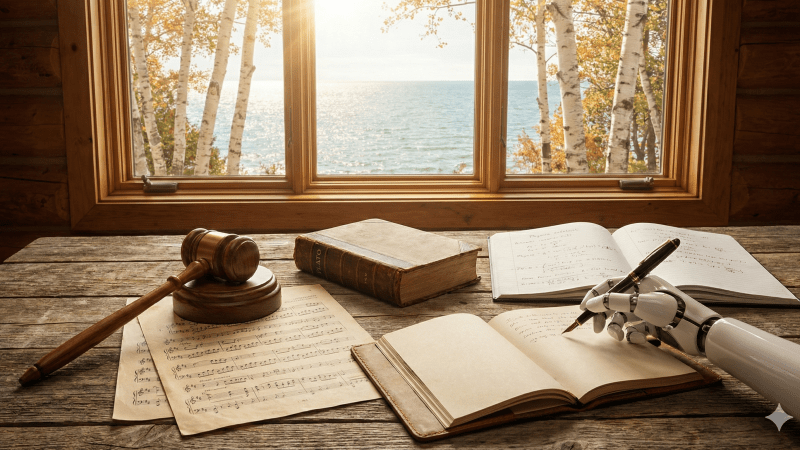
Exploring Artificial Intelligence
Schedule: June 14-19
Residents & Commuters arrive Sun, 4pm
Mon-Fri classes, 9am-noon
Instructors: Thomas Baer ‘74, Joseph Bruce ‘74, Michael Clayville, Mark Phelan
Description: Join four experts for an accessible, interactive exploration of artificial intelligence—what it really does, why it matters, and how it’s reshaping science, law, education, and the arts. From philosophical puzzles to surprising musical applications, this seminar makes AI understandable and invites you to think critically about the world it’s creating.
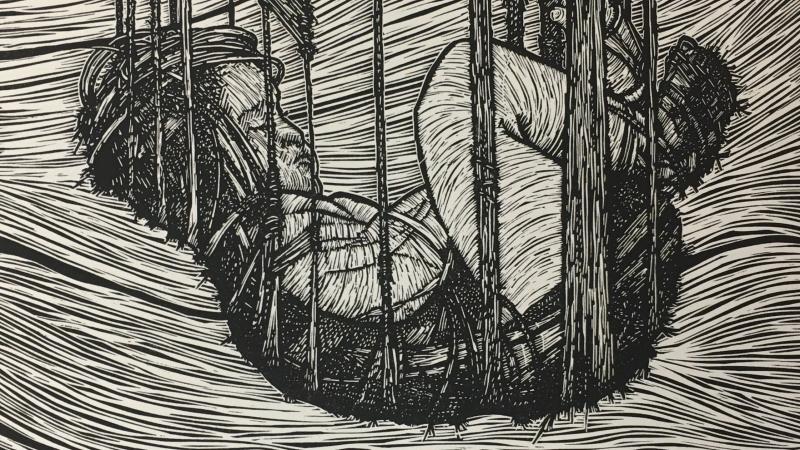
Relief Printing: Creation and Repetition
Course is full. To be added to a waitlist, please email bjorkseminars@lawrence.edu with registration preference.
Schedule: June 21-26
Residents & Commuters arrive Sun, 4pm
Mon-Fri classes, 9am-noon
Instructor: Brady Nichols '92
Description: Discover the timeless art of printmaking in a hands-on seminar that blends creativity with the natural beauty of Björklunden. Explore your imagination as you design, carve, and print your own creations in a supportive, collaborative artistic community—no prior experience required. $35 materials fee included.
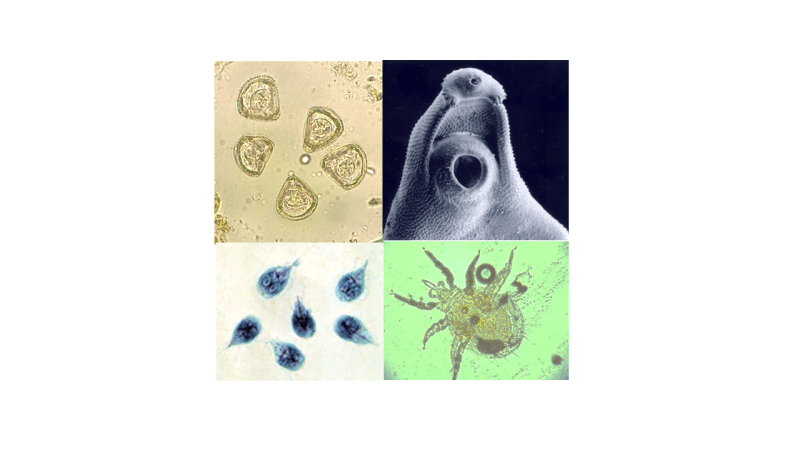
This Wormy World!
Schedule: June 28-July 1
Residents & Commuters arrive Sun, 4pm
Mon-Wed classes, 9am-noon
Instructor: Judith Humphries
Description: Explore the fascinating world of parasites in this engaging course, from those impacting global health to species found right here in Wisconsin. Learn how these organisms evade immune systems, alter host behavior, and get hands-on experience identifying preserved specimens.

Moving Through Your Day With Ease: Applying Alexander Technique
Schedule: June 28-July 1
Residents & Commuters arrive Sun, 4pm
Mon-Wed classes, 9am-noon
Instructor: Kathy Privatt
Description: Bring ease and efficiency to your everyday movements in this hands-on workshop that applies the Alexander Technique to daily activities—from sitting and standing to using devices and carrying items. Learn practical strategies to reduce strain, improve posture, and move mindfully, with personalized guidance for hobbies, sports, and music-making.
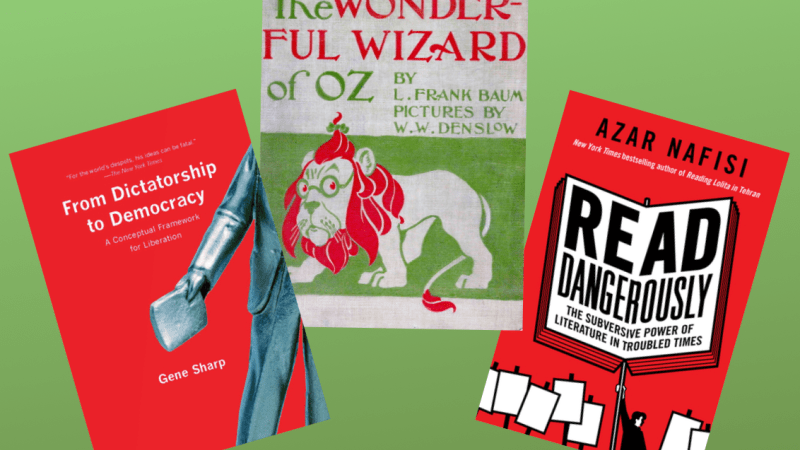
Democracy Book Club
Schedule: June 28-July 1
Residents & Commuters arrive Sun, 4pm
Mon-Wed classes, 9am-noon
Instructor: Bronwyn Mauldin
Description: Join the Democracy Book Club for thought-provoking conversations on how literature can inspire democratic values and action in challenging times. Together, we’ll explore nonviolent resistance in From Dictatorship to Democracy, the power of fiction in Read Dangerously, and surprising lessons on leadership in The Wonderful Wizard of Oz.
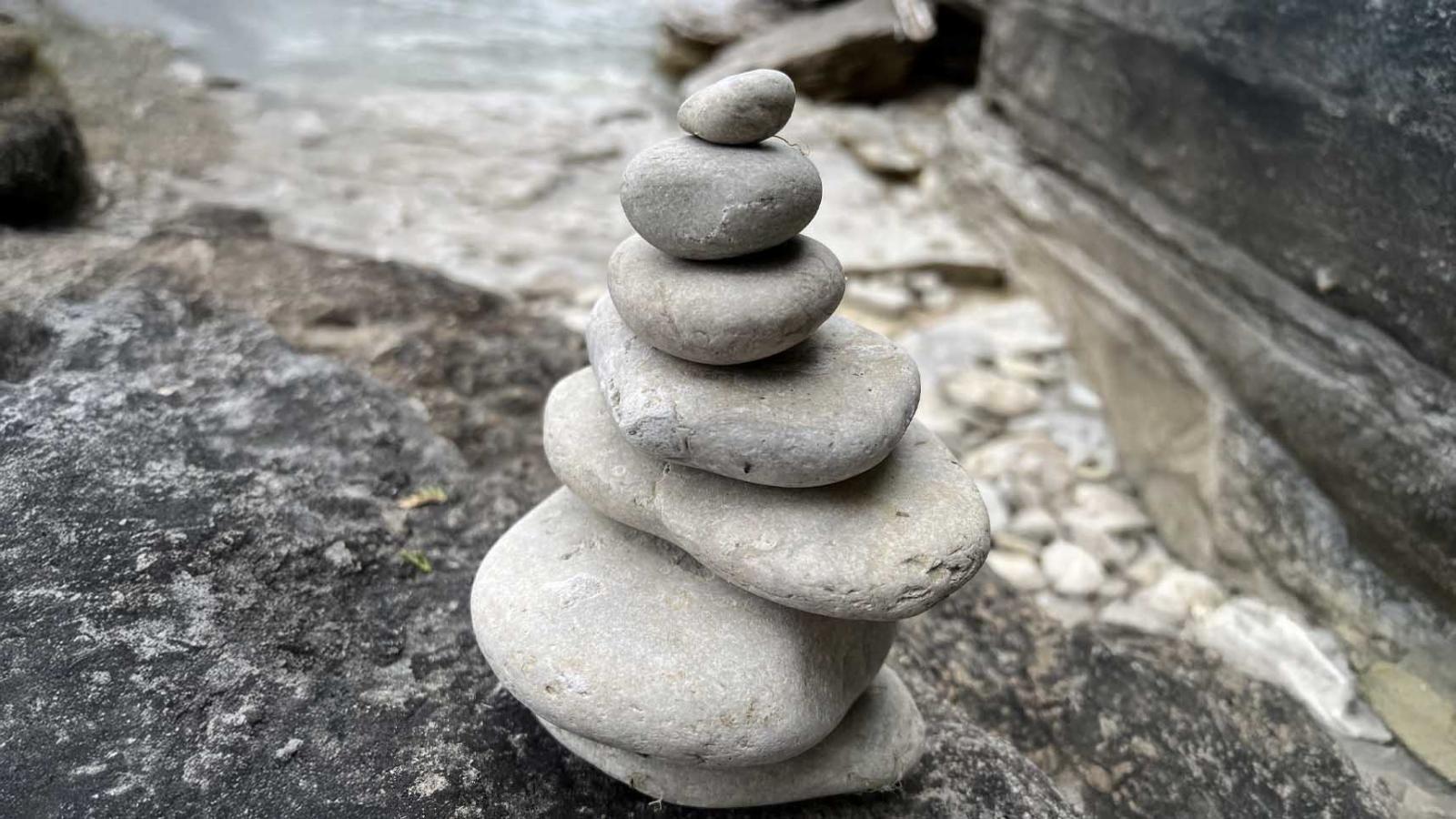
Mindfulness for All
Schedule: June 28-July 1
Residents & Commuters arrive Sun, 4pm
Mon-Wed classes, 9am-noon
Instructor: Lori Hilt '97
Description: Discover the benefits of mindfulness in this experiential seminar that blends instruction, discussion, and hands-on practice to help you stay present and reduce stress. Learn the science behind mindfulness while cultivating techniques for greater well-being—perfect for beginners and returning participants alike.
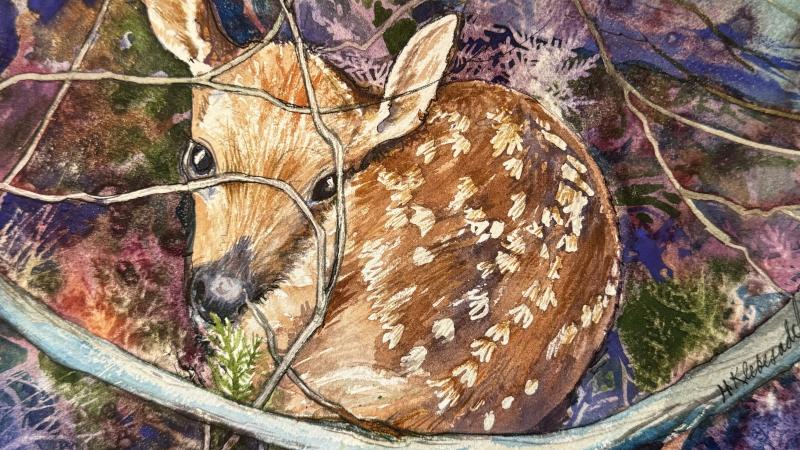
Watercolor: A Fresh Start
Schedule: July 5-10
Residents & Commuters arrive Sun, 4pm
Mon-Fri classes, 9am-noon
Instructor: Helen Klebesadel
Description: Discover the beauty of summer at Björklunden while learning watercolor techniques in a welcoming, beginner-friendly environment. From traditional methods to experimental wet-into-wet approaches, you’ll gain the skills and confidence to continue painting long after the workshop ends. $35 materials fee included.
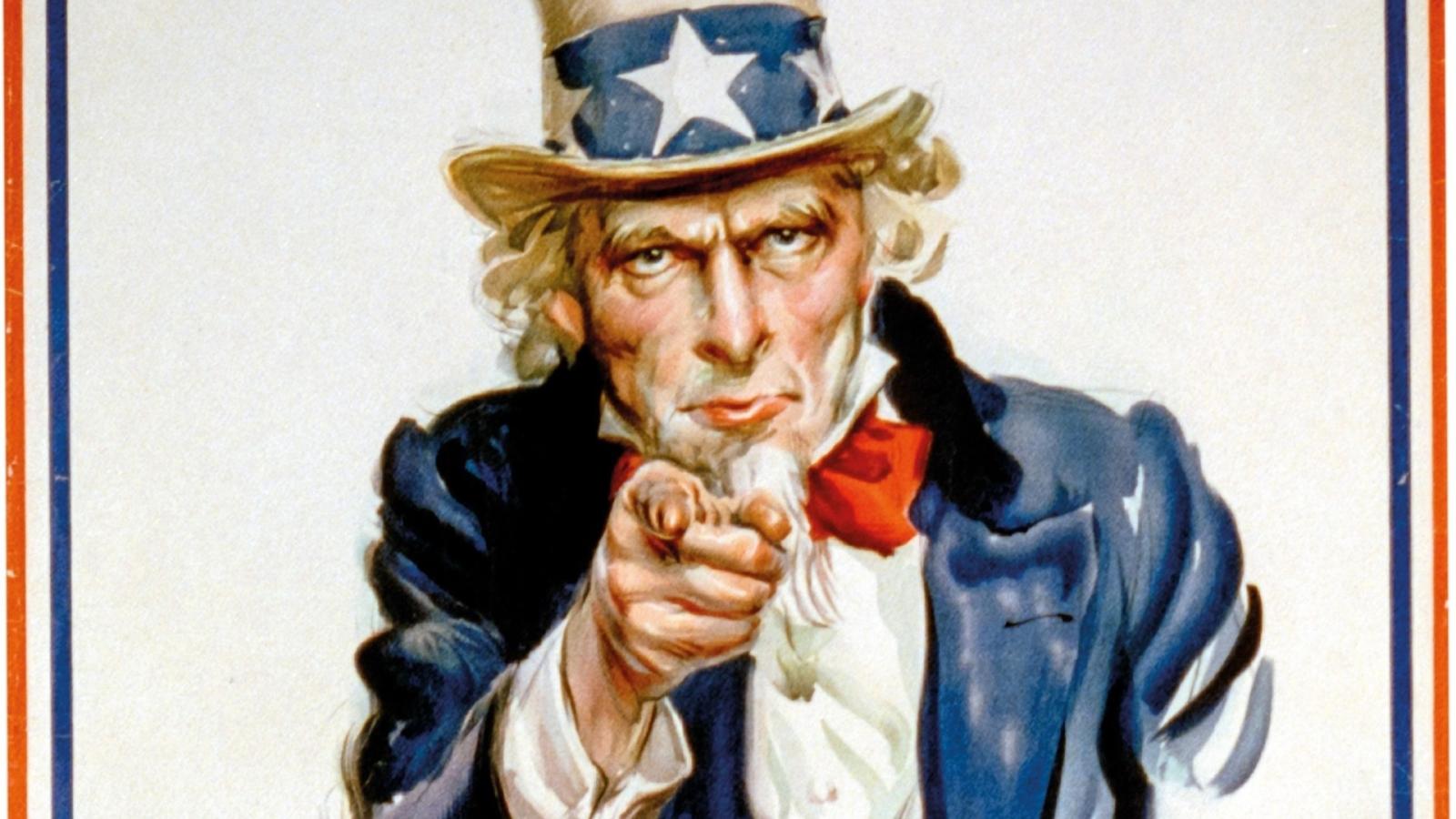
The United States, World War I, and the Arrival of the American Century
Schedule: July 5-10
Residents & Commuters arrive Sun, 4pm
Mon-Fri classes, 9am-noon
Instructor: Tim Crain
Description: Explore how World War I transformed the United States from an isolationist nation into a global power, setting the stage for the American Century. This seminar delves into the economic, military, and cultural shifts that reshaped America’s role on the world stage during one of modern history’s most pivotal eras.
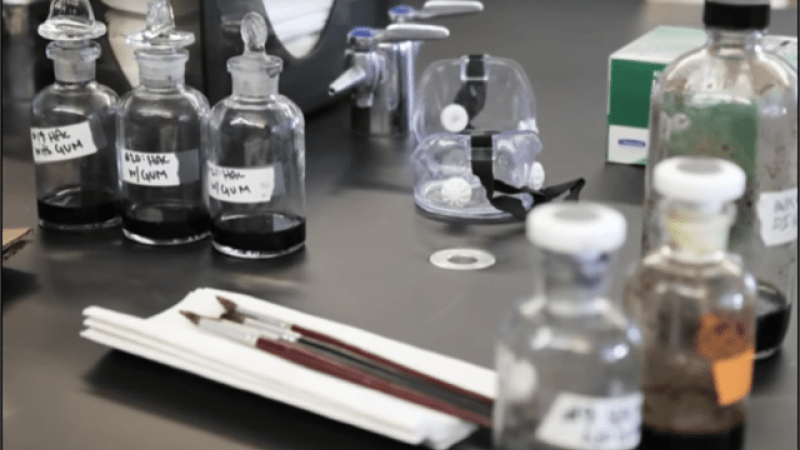
The Science of Art
Schedule: July 5-10
Residents & Commuters arrive Sun, 4pm
Mon-Fri classes, 9am-noon
Instructor: Allison Fleshman
Description: Investigate ways that chemistry shapes the world of art as we explore the science behind pigments, dyes, light, glass, and stained glass—complete with hands‑on activities and engaging lab experiences. The seminar also highlights cutting‑edge methods in art analysis, including research on identifying pigments in Medieval illuminated manuscripts and modern scientific approaches to studying artistic objects.
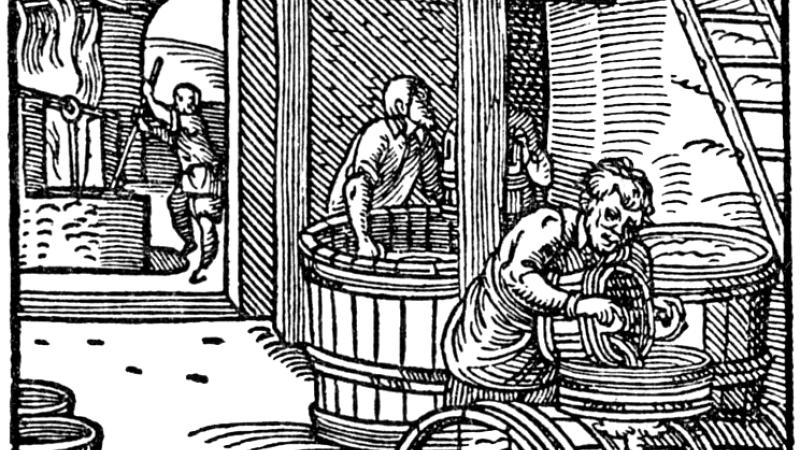
The Art, Science, and Culture of Beer
Schedule: July 5-10
Residents & Commuters arrive Sun, 4pm
Mon-Fri classes, 9am-noon
Instructor: Bobby Fleshman
Description: Dive into the art and science of brewing in this immersive week-long course that blends rich beer history with hands-on learning. From exploring iconic styles and brewing chemistry to tastings and field trips, you’ll gain a deeper appreciation for the craft behind every pint.
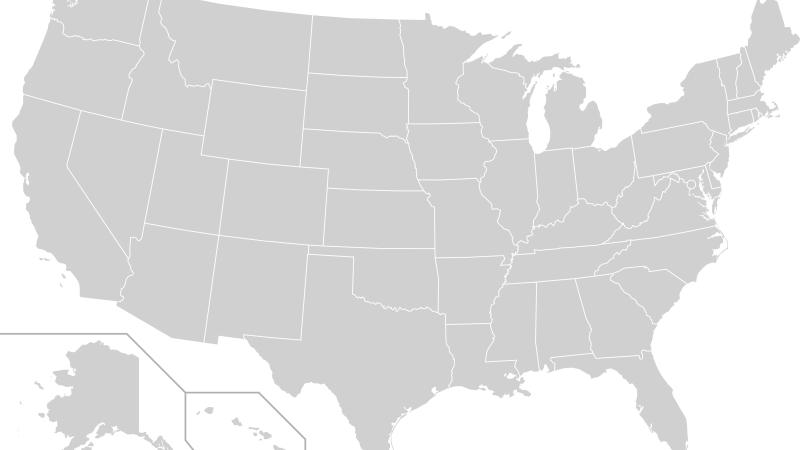
The Midterms: High stakes, new media, and no guarantees
Schedule: July 26-31
Residents & Commuters arrive Sun, 4pm
Mon-Fri classes, 9am-noon
Instructor: Terry Moran '82
Description: The 2026 midterms may be the most consequential congressional elections of our lifetime. This seminar explores the upcoming midterm elections as a case study in democratic fragility—whether elections can still secure a democratic future.
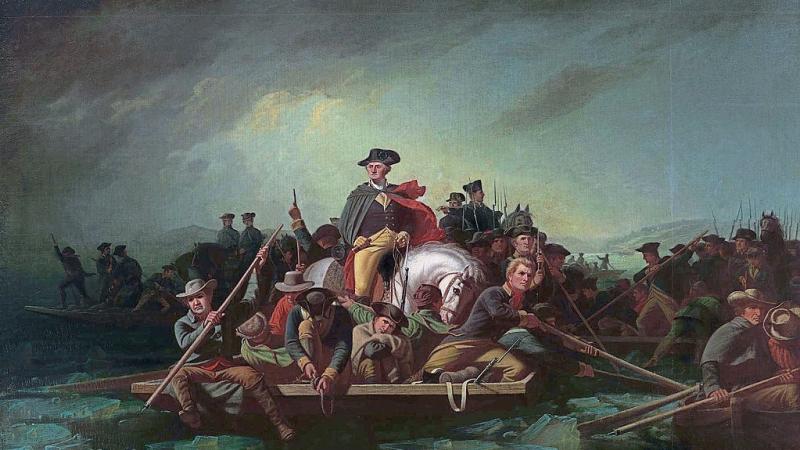
Washington Crossing the Delaware by George Caleb Bingham, oil on canvas, Chrysler Museum of Art
The American Revolution at 250
Schedule: July 26-31
Residents & Commuters arrive Sun, 4pm
Mon-Fri classes, 9am-noon
Instructor: Jerald Podair & Jonathan Greenwald
Description: Revisit the American Revolution as we mark its 250th anniversary, exploring the conflict that shaped our nation and continues to influence debates over freedom and equality. Guided by themes from the recent Ken Burns PBS documentary, this seminar examines the Revolution as a military, political, and social upheaval with lasting global impact.
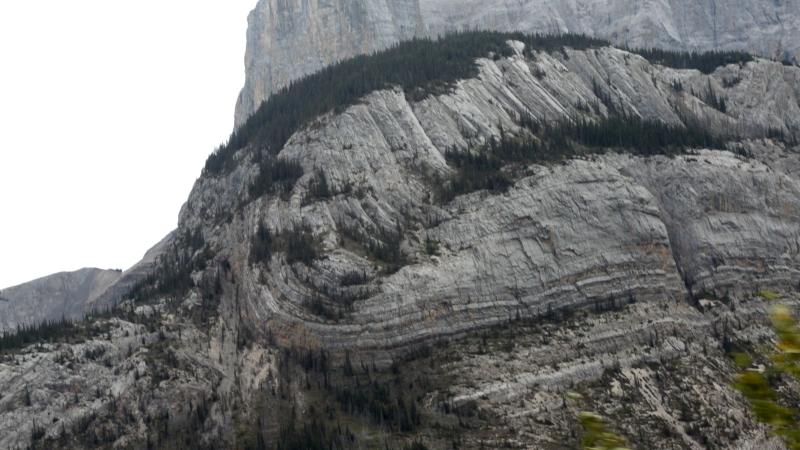
Geology: The Astonishing Earth
Schedule: August 2-7
Residents & Commuters arrive Sun, 4pm
Mon-Fri classes, 9am-noon
Instructor: Bill Shefchik
Description: Discover the hidden stories of Earth’s most spectacular geological features through dynamic presentations featuring rock samples, photos, and hands-on exhibits. With expert guidance, you’ll learn the essentials of geology and gain a new appreciation for the wonders of our planet—knowledge you can carry with you for life.
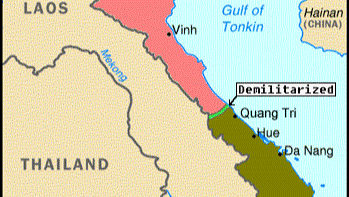
Vietnam: America's Longest War, 1954-75
Schedule: August 2-7
Residents & Commuters arrive Sun, 4pm
Mon-Fri classes, 9am-noon
Instructor: Tim Crain
Description: Examine the Vietnam War and its profound impact on American politics, society, and foreign policy in this engaging seminar. Explore the conflict abroad, the bitter divisions at home, and the lasting lessons learned from one of the most turbulent eras in U.S. history.
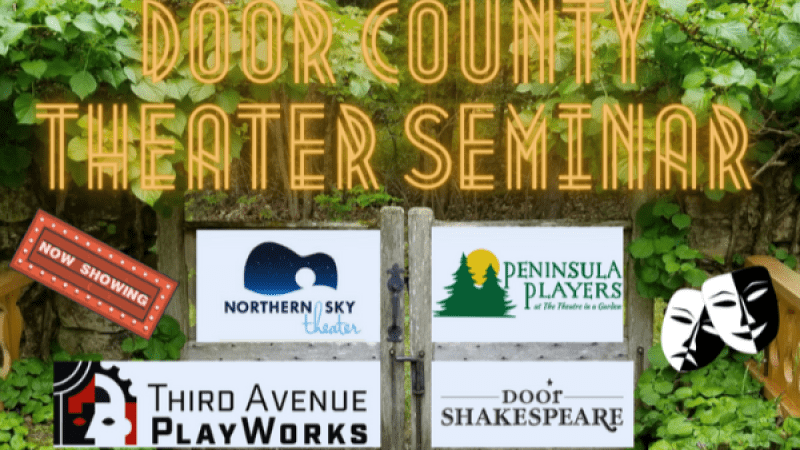
The Door Four
Schedule: August 2-7
Residents & Commuters arrive Sun, 4pm
Mon-Fri classes, 9am-noon
Instructor: Dan Klarer
Description: Immerse yourself in Door County’s vibrant theatre scene with The Door Four, an unforgettable week of performances and insider access. Enjoy four professional shows, behind-the-scenes tours, and engaging discussions with special guests and local artists that will deepen your appreciation for the art and history of theatre.
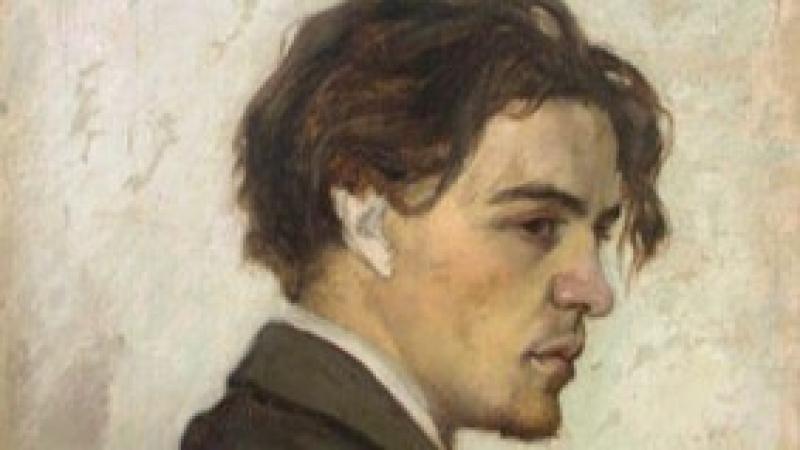
Painting of Anton Chekhov by Nilolay Chekhov
Poignant, Prosaic, and Possibly Pointless: The Stories of Anton Chekhov
Schedule: August 2-7
Residents & Commuters arrive Sun, 4pm
Mon-Fri classes, 9am-noon
Instructor: Peter Thomas
Description: Dive into the wit and wisdom of Anton Chekhov in this seminar that connects his medically precise humor and everyday observations to modern comedy icons like Monty Python, Seinfeld, and The Office. Through readings, viewings, and lively discussion, we’ll explore Chekhov’s timeless themes—from love and faith to the clash between art, family, and economy—while experiencing his influence across literature and performance.
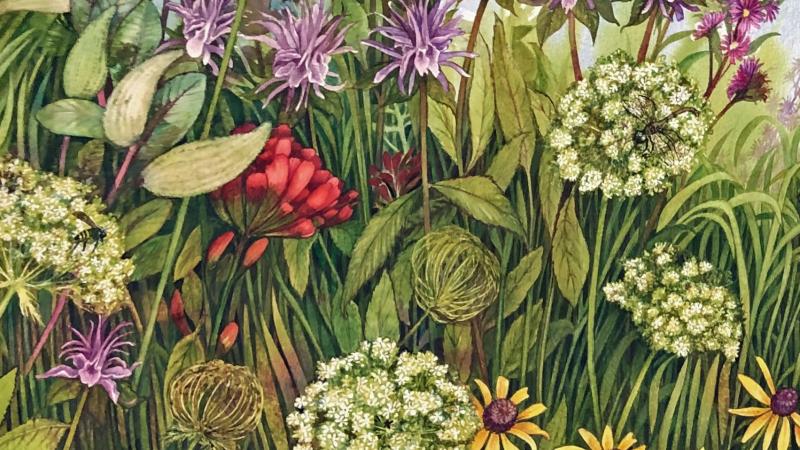
Watercolor: The Expressive Medium
Seminar currently full. To be added to a waitlist, email bjorkseminars@lawrence.edu with your name and registration preference
Schedule: August 9-15*
Residents & Commuters arrive Sun, 4pm
*Residents depart Sat after breakfast
Mon-Fri classes, 9am-noon
Instructor: Helen Klebesadel
Description: Discover the versatility of watercolor in this seminar designed for artists from novice to experienced. Explore traditional and nontraditional techniques to create unique artistic statements or return to focus on independent projects. Friday evening reception. A $35 materials fee is included in the registration price.
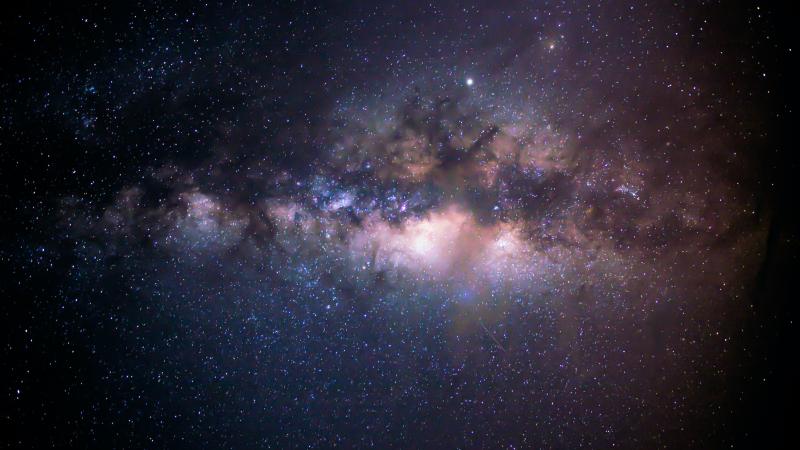
Stardust Memories: Space, Time, and the Universe
Schedule: August 9-14
Residents & Commuters arrive Sun, 4pm
Mon-Fri classes, 9am-noon
Instructor: Megan Pickett
Description: Embark on a beginner-friendly journey through the cosmos as we explore the origins of the Universe, the nature of space and time, and groundbreaking concepts like the Big Bang and multiverse theory. Enjoy engaging discussions paired with evening telescopic observations for a truly stellar experience.
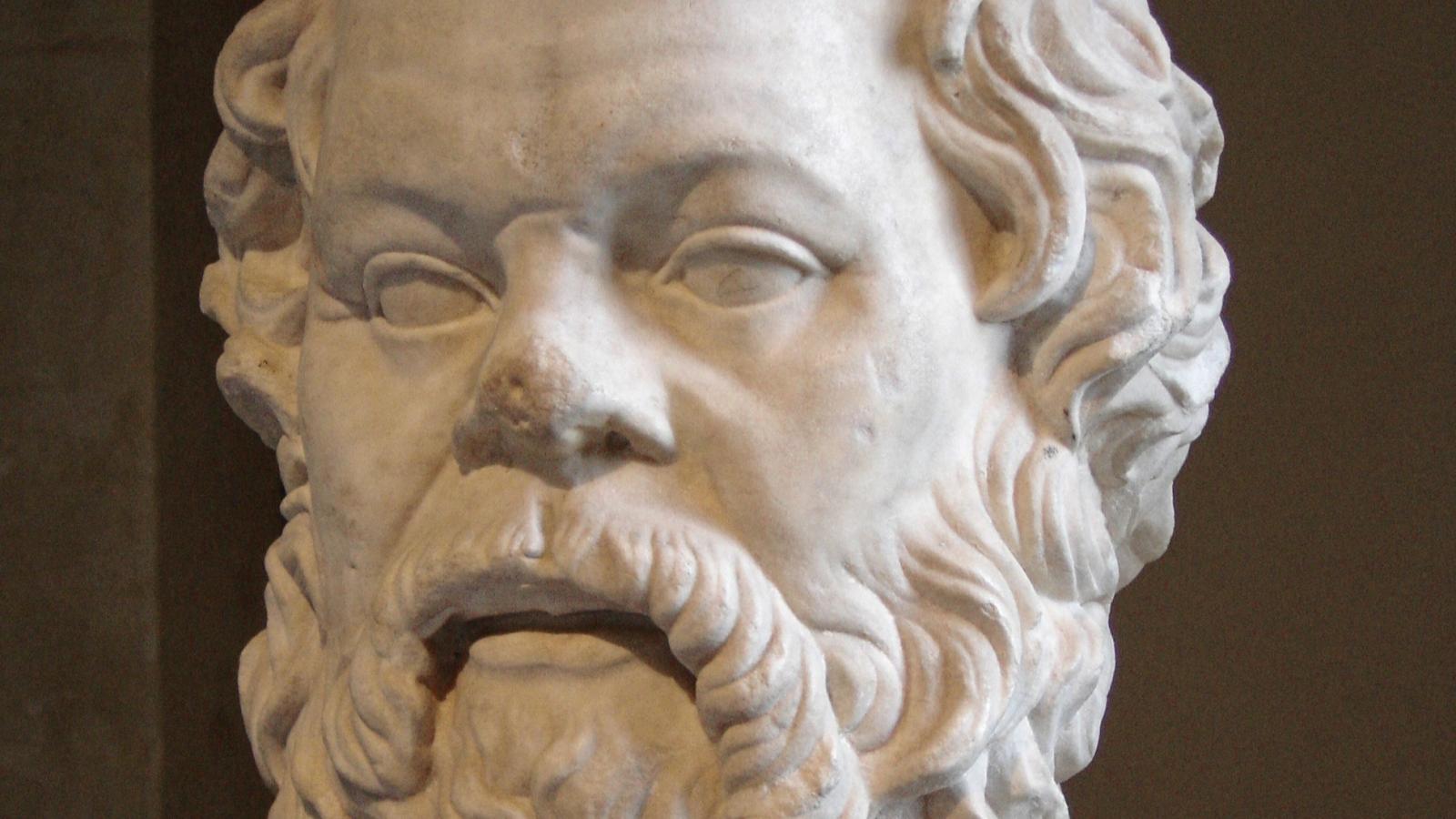
Rationality, Critical Thinking…and Hope…
Schedule: August 9-14
Residents & Commuters arrive Sun, 4pm
Mon-Fri classes, 9am-noon
Instructor: Terry Goode
Description: Join us for a dynamic seminar on the art of rational thinking—where every belief is open to challenge and progress emerges from bold questions. Through interactive discussions, real-world examples, and a lively Socratic forum, you’ll gain practical tools to reason clearly, tackle uncertainty, and apply critical thinking to today’s toughest moral issues.
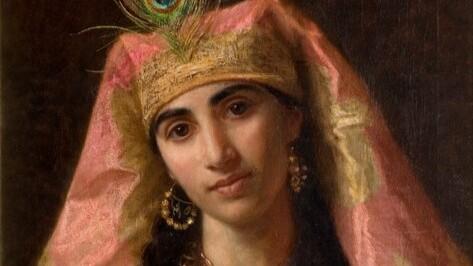
Scheherazade by Sophie Gengembre Anderson, oil on canvas
From Scheherazade to Wonder Woman - The Heroine with 1,001 Faces
Schedule: August 30-September 2
Residents & Commuters arrive Sun, 4pm
Mon-Wed classes, 9am-noon
Instructor: Marjorie Graham
Description: Discover Maria Tatar’s groundbreaking work, The Heroine with 1,001 Faces, as we explore the hidden history of heroines who champion care, curiosity, and compassion over conquest. Join us for a thought-provoking discussion on how these stories—and the women who wrote them—offer bold new visions of justice, solidarity, and the future.
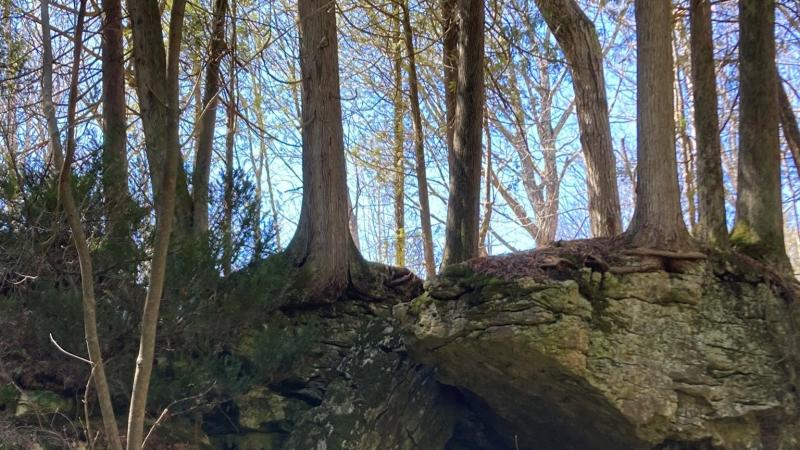
Be Present in Nature and Discover What Nature has to Present you
Schedule: August 30-September 2
Residents & Commuters arrive Sun, 4pm
Mon-Wed classes, 9am-noon
Instructor: Jane Burress
Description: Step away from the rush of daily life and immerse yourself in the calming practice of forest bathing—guided, sensory-rich walks that invite presence and connection with nature. Led by a certified guide, this opportunity will blend gentle outdoor experiences with insights into the history and health benefits of forest therapy, plus creative opportunities to journal and reflect.

What Makes us What We Are: Theories of Personality
Schedule: August 30-September 2
Residents & Commuters arrive Sun, 4pm
Mon-Wed classes, 9am-noon
Instructor: David Burrows
Description: This seminar explores how major theories of human personality—from classical Western and Eastern traditions to Marx, Darwin, Skinner, Sartre, modern cognitive psychology, and artificial intelligence—seek to explain our thoughts, desires, actions, virtues, and flaws. Through discussion and application of these theories to contemporary figures, we will consider how personality frameworks shape our understanding of the modern world and offer insight into addressing current global challenges.
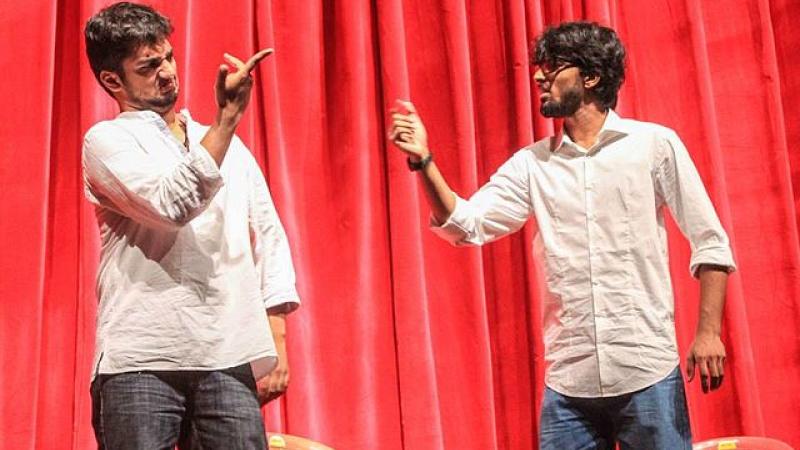
Get Out of Your Head: Mastering the Art of Authentic Communication
Schedule: August 30-September 2
Residents & Commuters arrive Sun, 4pm
Mon-Wed classes, 9am-noon
Instructor: Mary Trieschmann & Lisa Cormier
Description: Unlock the power of authentic communication through playful exercises that blend active listening with the principles of improvisational theater. In this interactive seminar, you’ll learn to quiet your inner critic, embrace spontaneity, and build deeper, more meaningful connections with others.
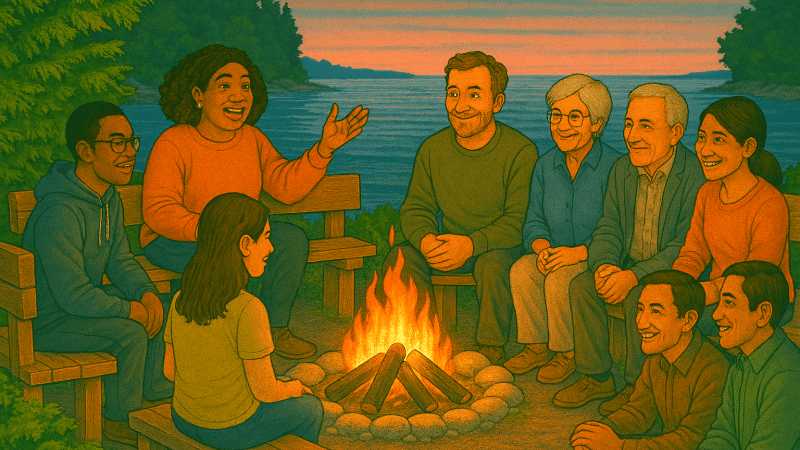
Stories We’ve Yet to Tell: A Stortytelling Workshop for All
Schedule: September 13-16
Residents & Commuters arrive Sun, 4pm
Mon-Wed classes, 9am-noon
Instructor: Shelley Davis '92
Description: Discover the power of storytelling in this immersive three-day workshop inspired by The Art of Gathering and The Moth Radio Hour. Through guided exercises and a supportive community, you’ll craft an original, authentic narrative and share it during a celebratory Story Showcase for fellow participants and guests.
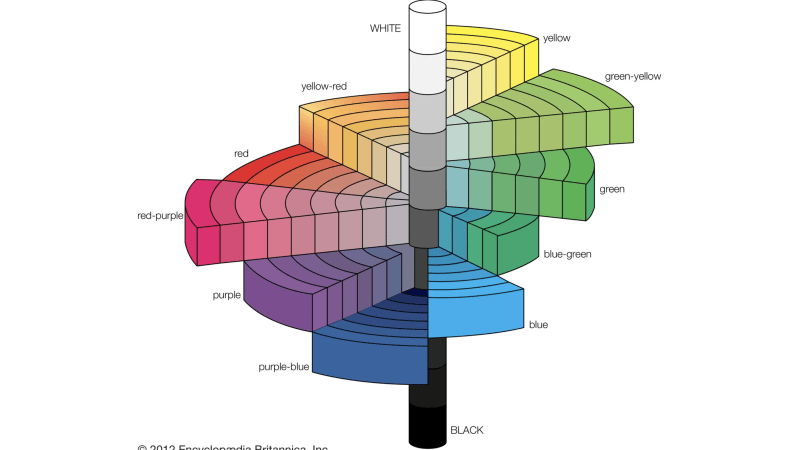
Understanding Color: A Painting Workshop
Schedule: September 13-16
Residents & Commuters arrive Sun, 4pm
Mon-Wed classes, 9am-noon
Instructor: Jill Newman
Description: Dive into an immersive painting workshop that unlocks the secrets of color—from prehistoric pigments to modern Minimalism—through hands-on practice and art-historical insights. You’ll learn to apply hue, value, and intensity; experiment with Josef Albers–inspired studies; and finish with a painting that reflects your new confidence and understanding of color. A $15 materials fee is included in the registration price.
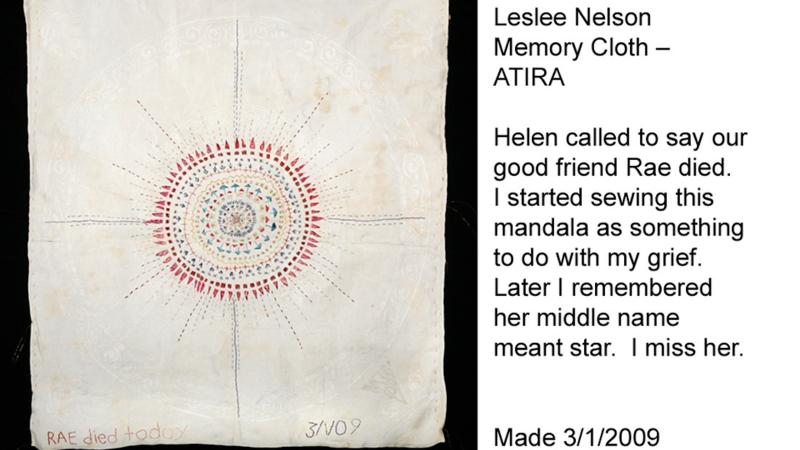
Making Memory Cloths
Schedule: September 13-16
Residents & Commuters arrive Sun, 4pm
Mon-Wed classes, 9am-noon
Instructor: Leslee Nelson
Description: Experience the restorative power of creativity in this Memory Cloth workshop, where stitching your stories becomes a pathway to reflection, connection, and emotional healing. In a supportive circle, you’ll slow down, share, and discover new insights as you transform memories into meaningful art—no stitching experience required.
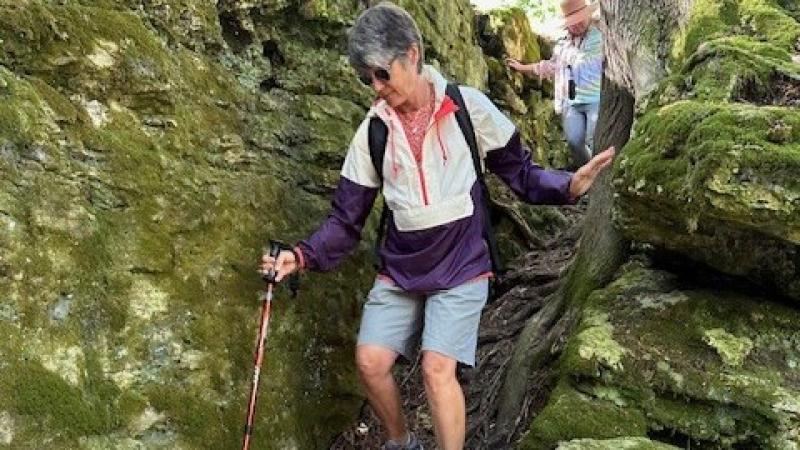
Explore Door County's Less Traveled Trails
Schedule: September 13-16
Residents & Commuters arrive Sun, 4pm
Mon-Wed classes, 9am-noon
Instructor: Jane Whitney
Description: Each morning, this class explores one of Door County’s quieter nature preserves on leisurely hikes focused on local plants, wildlife, geology, and whatever the trail reveals. Optional afternoon hikes are offered, and participants should be prepared for 2–4 miles of walking on rustic, uneven terrain with sturdy footwear recommended.
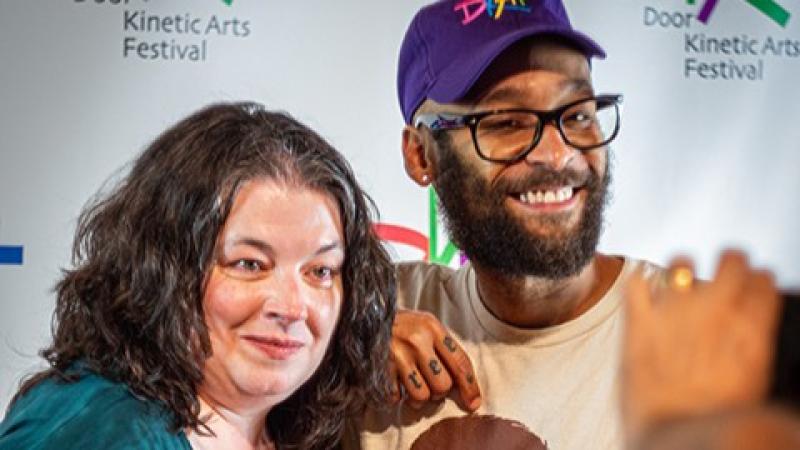
Collaborators Michelle McQuade Dewhirst (Weidner Philharmonic) and Jumaane Taylor (Chicago Human Rhythm Project)
Astonish Us in the Morning: The Performing Arts in the 21st Century!
Schedule: September 20-25
Residents & Commuters arrive Sun, 4pm
Mon-Fri classes, 9am-noon, nightly performances
Instructor: Eric Simonson '82
Description: Join an immersive seminar during the Door Kinetic Arts Festival to explore the origins of creativity and the power of artistic collaboration. Led by award-winning Director Eric Simonson, this unique experience combines thought-provoking discussions with behind-the-scenes access to nationally recognized artists, performances, and festival events.
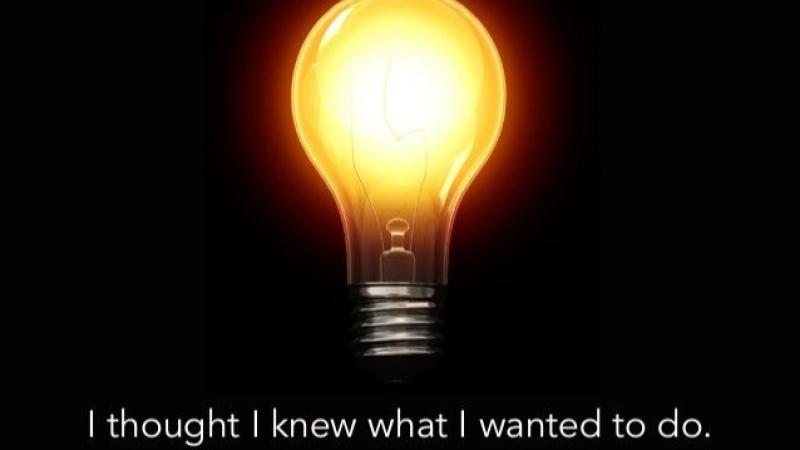
Leadership in Later Life
Schedule: September 28-October 1
Residents & Commuters arrive Sun, 4pm
Mon-Wed classes, 9am-noon
Instructor: Buck Rhyme
Description: This seminar redefines leadership as a choice rather than a title, inviting retirees to explore how influence and purpose can thrive beyond a career. Through thought-provoking discussions, peer learning, and personal reflection, you’ll discover practical ways to create meaningful impact, leave a lasting legacy, and remain effective in life’s next chapter.
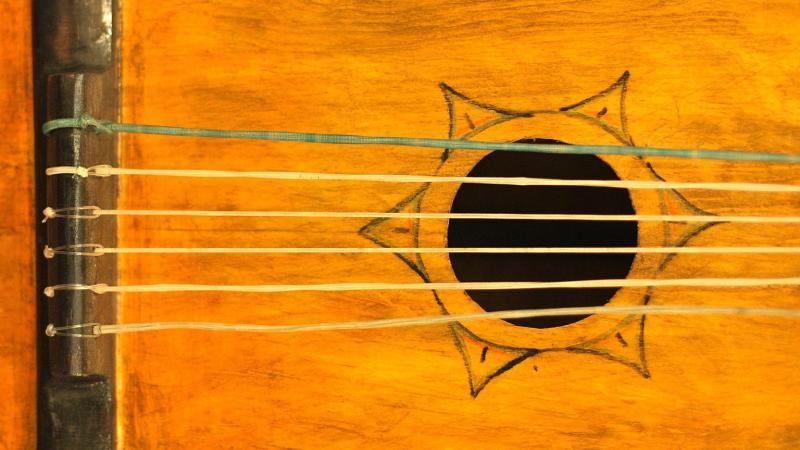
Song Camp (with Alice and Sarah)
Schedule: September 28-October 1
Residents & Commuters arrive Sun, 4pm
Mon-Wed classes, 9am-noon
Instructor: Alice Peacock '92 & Sarah Morris '01 (with special guest Katie Dahl)
Description: Immerse yourself in a three-day songwriting retreat at the breathtaking Björklunden estate, where acclaimed artists Alice Peacock and Sarah Morris guide you through workshops, mentoring, and creative exploration. From morning sessions on craft to evening jam circles under the Door County sky, this intimate experience blends inspiration, instruction, and community for songwriters of all levels.
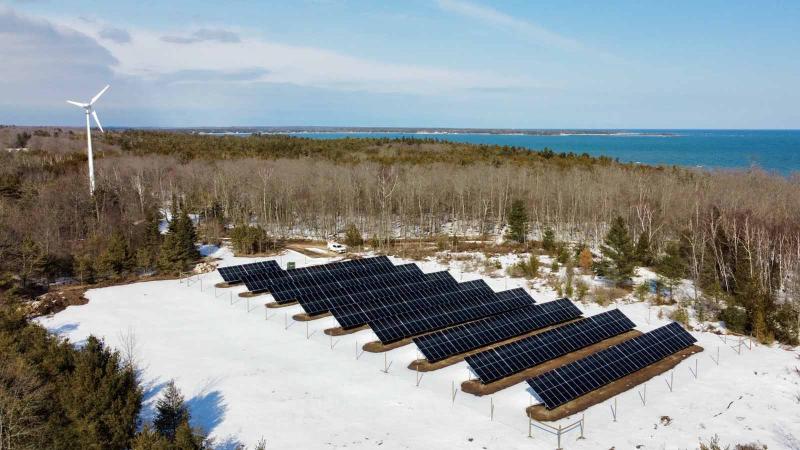
It's Not Easy Being Green
Schedule: September 28-October 1
Residents & Commuters arrive Sun, 4pm
Mon-Wed classes, 9am-noon
Instructor: Rick Hearn '75
Description: Explore the future of sustainable energy in this interactive seminar, where we dive into real-world projects like solar, wind, and carbon capture from Lawrence’s Net-Zero Björklunden initiative. Through case studies and lively discussion, you’ll examine the science, technology, and societal impact behind green energy solutions shaping tomorrow’s world.
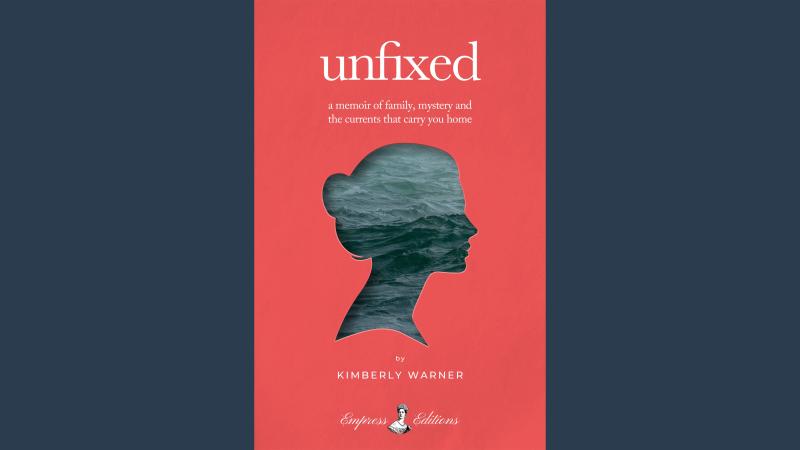
Beyond Resolution: Stories of the Unfixable
Schedule: October 4-7
Residents & Commuters arrive Sun, 4pm
Mon-Wed classes, 9am-noon
Instructor: Kimberly Warner
Description: Explore what it means to live with life’s “unfixed” realities in this transformative seminar that challenges the cultural obsession with resolution and cure. Through award-winning films, creative exercises, and guided reflection, you’ll learn to craft meaningful stories from experiences like chronic illness, grief, and aging—no artistic experience required.
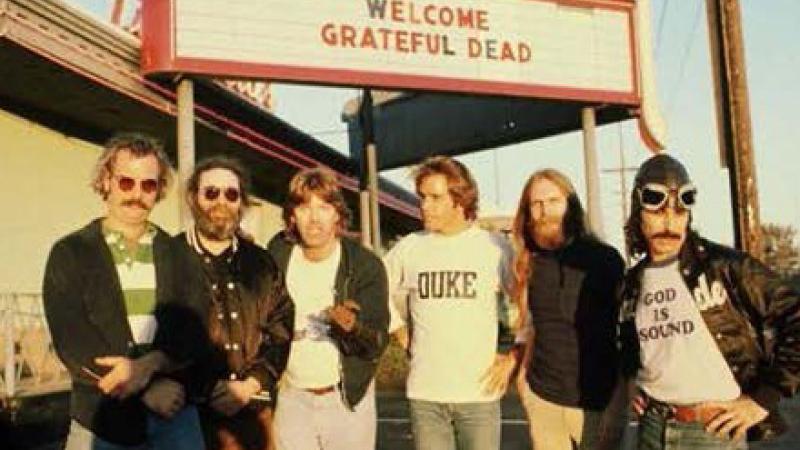
What a Long Strange Trip: The Music and World of the Grateful Dead
Schedule: October 4-7
Residents & Commuters arrive Sun, 4pm
Mon-Wed classes, 9am-noon
Instructor: Eric Mlyn
Description: This seminar immerses participants in the music and world of the Grateful Dead, exploring their improvisational style, songwriting, legendary live performances, and the unique fan community that grew around them. Through close listening, concert films, visual art, and lyrics, the course traces how the band’s sound evolved into a distinctly American musical tradition, and how they created one of the most enduring and influential artistic and cultural communities in American music.
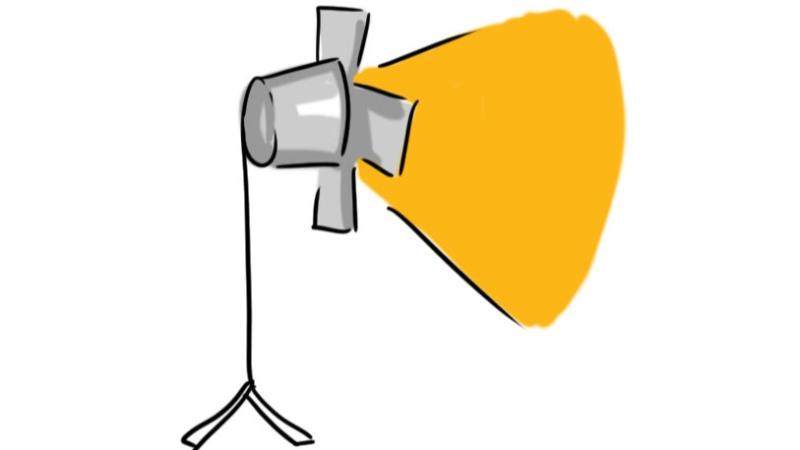
Name Dropping
Schedule: October 4-7
Residents & Commuters arrive Sun, 4pm
Mon-Wed classes, 9am-noon
Instructor: Charlie Schudson
Description: Dive into the allure and impact of fame in this entertaining yet thought-provoking seminar that explores its artistic, emotional, and societal consequences. Through stories of famous figures, personal anecdotes, and spirited discussion, we’ll unpack the psychodynamics of ambition and notoriety—laughs guaranteed along the way.
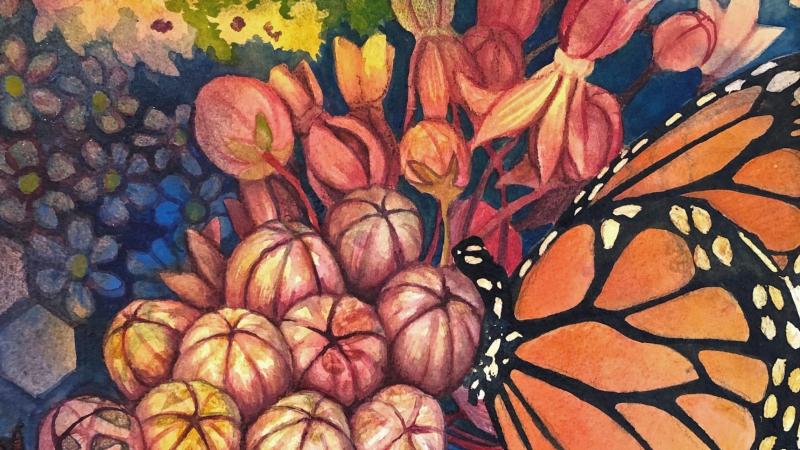
Watercolor: In the Flow Intensive
Schedule: October 11-14
Residents & Commuters arrive Sun, 4pm
Mon-Wed classes, 9am-noon
Instructor: Helen Klebesadel
Description: This guided painting retreat focuses on participants’ own artistic trajectories. Guided exercises will support you through realizing your personal painting project(s). A $35 material fee is added to the registration cost.
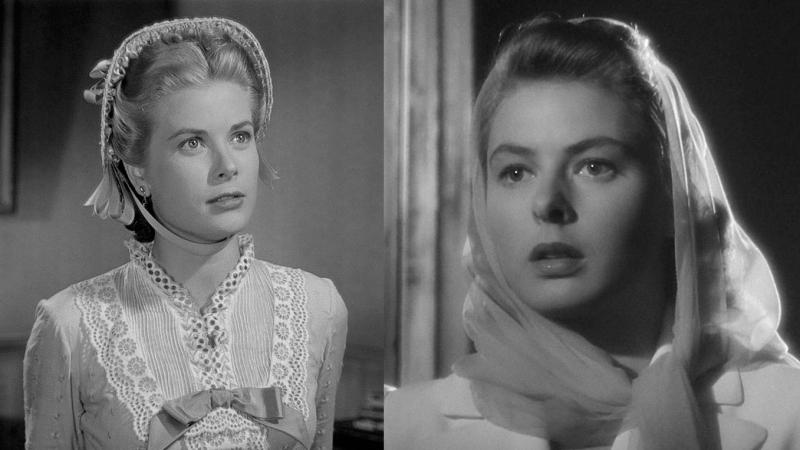
Grace Kelly in "High Noon" & Ingrid Bergman in "Casablanca"
High Noon at Casablanca: Two American Classics, Ten Years Apart
Schedule: October 11-14
Residents & Commuters arrive Sun, 4pm
Mon-Wed classes, 9am-noon
Instructor: Paul McComas '83
Description: Join media scholar Paul McComas ’83 for an immersive exploration of two American cinematic classics—”Casablanca” and “High Noon”—through screenings and lively discussion. Discover how these iconic films, released a decade apart, reflect contrasting yet connected visions of patriotism, heroism, community, good vs. evil, and love, and why they remain as relevant and riveting today as ever.
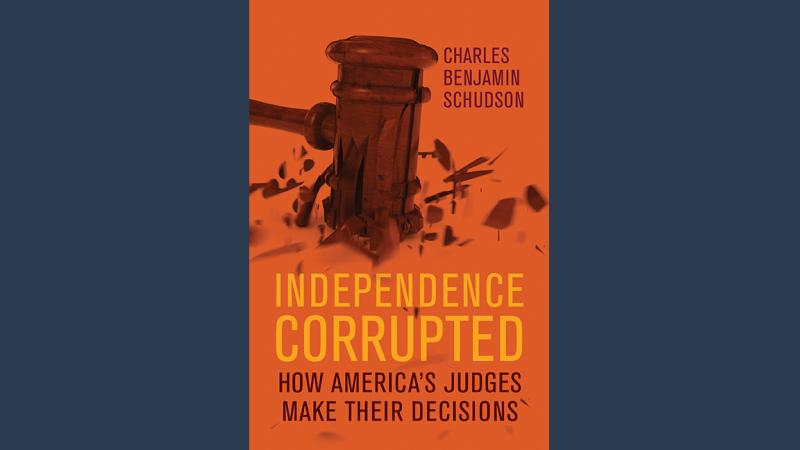
Judgment Day / Yesterday’s Literature, Today’s Law, Tomorrow’s Lessons
Schedule: October 11-14
Residents & Commuters arrive Sun, 4pm
Mon-Wed classes, 9am-noon
Instructor: Charlie Schudson
Description: Join retired judge and legal scholar Charles Schudson for a thought-provoking seminar on the past, present, and future of judicial independence in America. Through historical context, current controversies, and lively discussion, we’ll explore whether our courts can withstand political pressure—and what that means for the survival of our democratic republic.
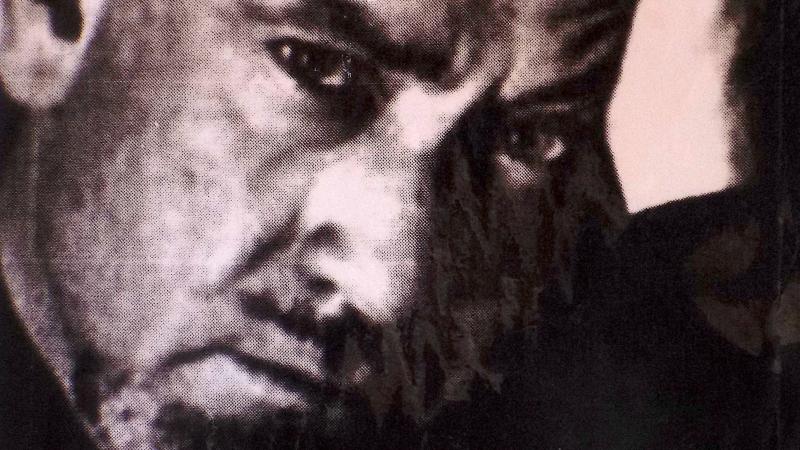
John Steinbeck: Scribe of Social Conscience, Part 2 of 3
Schedule: October 18-23
Residents & Commuters arrive Sun, 4pm
Mon-Friday classes, 9am-noon
Instructor: Paul McComas '83
Description: Take a fresh look at John Steinbeck’s mid-career masterpieces in this dynamic seminar featuring dramatic readings, insightful analysis, and lively discussion led by literary scholar and performer Paul McComas (LU ’83). Optional evening screenings of film adaptations and a biographical documentary complement an engaging exploration of Steinbeck’s enduring advocacy for “the have-nots” and his timeless call for empathy and justice.

Epidemics in our world now, and how our genes and immune systems evolve to combat them.
Schedule: October 25-28
Residents & Commuters arrive Sun, 4pm
Mon-Wednesday classes, 9am-noon
Instructor: David W Hines MD ‘76
Description: This fascinating seminar explores groundbreaking moments in medical history and biology—from bacteria’s immune systems inspiring gene therapy to the invention of vaccines and the surprising cures involving hookworms and life-saving microbes. Along the way, we’ll uncover how plagues shaped our genome, why milkmaids changed medicine, and how a tiny insect altered the course of history.
Seminar Options & Pricing
There are many ways to experience Björklunden: you may choose to attend a seminar as a Resident with room and board, take a class as a Commuter and enjoy Sunday dinner and lunches, or join as an Auditor (no meals). Houseguests and children of seminar participants are also welcome. Each of these options is available for online registration at the rates indicated below.
Viking Discount: We offer an attractive discount for current students, recent grads of Lawrence University (classes 2017-2026), and Lawrence University faculty and staff. Look for the Viking Discount option when registering. Alum, please remember to enter your class year when registering.
Cancellation Policy
Participants may cancel their seminar registration and receive a full refund up to seven (7) days prior to the seminar start date. Cancellations made within seven (7) days of the scheduled arrival date will incur a fee equal to 50% of the total program cost.
In cases where cancellation is due to a communicable illness, the cancellation fee will be waived in recognition of Björklunden’s communal setting. If a seminar must be cancelled by Lawrence University / Björklunden, participants will be entitled to a full refund.
ONLINE SEMINARS $150
IN-PERSON SEMINARS
| Sun. - Fri. Seminars | 3-day Seminars | Lodging add-on, per night | |
|---|---|---|---|
| Single | $1,458 | $891 | $114 |
| Double | $1,073 | $660 | $57 |
| Commuter (includes Sunday dinner & lunches) | $633 | $391 | |
| Auditor (tuition only; no meals) | $450 | $270 | |
| Houseguest (single) | $1,217 | $749 | |
| Houseguest (double) | $780 | $487 | |
| Child Houseguest | $330 | $256 |
Seminar Registration Notes:
- All June 14-19 seminars include an option to depart on Thursday after lunch for a reduced rate to accommodate participation in Lawrence University Reunion Weekend (June 18-21).
- The Democracy Book Club running June 28-July 1 will be discussing one book per day and registrants have the option to select all three, two, or one day of participation. See the seminar description for schedule details.
- Helen Klebesadel's Watercolor: The Expressive Medium seminar runs until Saturday morning (i.e. August 9-15), and features an art reception Friday night. Additional fees are added for Friday dinner, overnight lodging, and Saturday breakfast. Registrants for the other seminars that week have the option to extend their stay until Saturday as well for an additional charge.
- Participants in three-day seminars may opt to add up to two additional nights stay in the lodge to extend their retreat. The cost for lodging is $100 per night, per room, plus tax. There are no formal seminar classes held or meals served served after lunch on the last day of class. (Nearby dining options are plentiful and can be found here). Check out is 11am on your departure day.
Seminar Guidelines
- Class sizes are limited. Early registration helps ensure your preferred seminar options. If registration is full, you may be added to a wait list.
- Registration is open to the general public – participants need not have a connection to Lawrence University in order to attend.
- Residents and Commuters may arrive after 4 p.m. on Sunday for the opening dinner which happens at 5:30. Instructors often hold an informal “meet and greet” session with class participants after dinner on Sunday. The seminar sessions officially begin at 9am on Monday morning.
- Seminar sessions typically meet on weekday mornings from 9 a.m. to noon. Instructors may offer optional afternoon or evening sessions, and they have the freedom to change the typical schedule if need be.
- Public events, and optional activities, are often held on any given seminar week which participants may attend. Details about these events will be posted at the lodge and announced during Sunday dinner. Examples include hikes, chapel tours, concerts, talks, and exhibits.
- Dinner is not served at the lodge Wednesday evenings, and guests are encouraged to support some of the fine local restaurants in Door County.
- Sunday through Friday seminars end after Friday lunch; Three-day seminars end after lunch on the last day of class.
- Participants are responsible for acquiring any seminar texts and/or materials suggested by the instructor. Seminar leaders will reach out to students with any pre-arrival preparations. Additionally, please note that some seminar instructors may assign coursework before and/or across the week.
- Participants should bring their own writing utensils, notebooks, folders, tablets, laptops, and/or other items that will aid in taking notes and organizing class materials.
- Lawrence University may document seminar activities via photograph, video, or sound-based media during courses and events and may use such media for educational, promotional, advertising, and other purposes. Please notify us if you wish to opt-out of appearing in seminar documentation.
A Note About Communicable Illness
Due to the nature of the communal experience enjoyed at Björklunden seminars, and to accommodate those with compromised immune systems, please do not come if you are experiencing symptoms consistent with communicable disease (e.g. COVID, influenza, etc.). Anyone needing to cancel due to illness will be issued a full refund. Björklunden is a mask friendly campus. Masks may be worn by anyone at any time, and individuals may determine their own guidelines for their individual space and exposure. Thank you!
